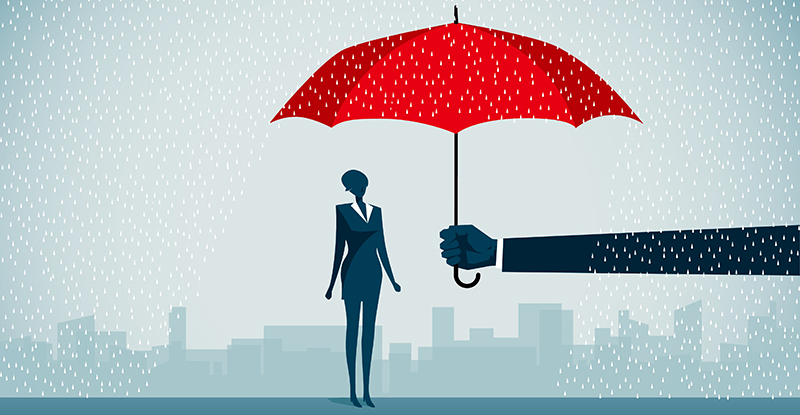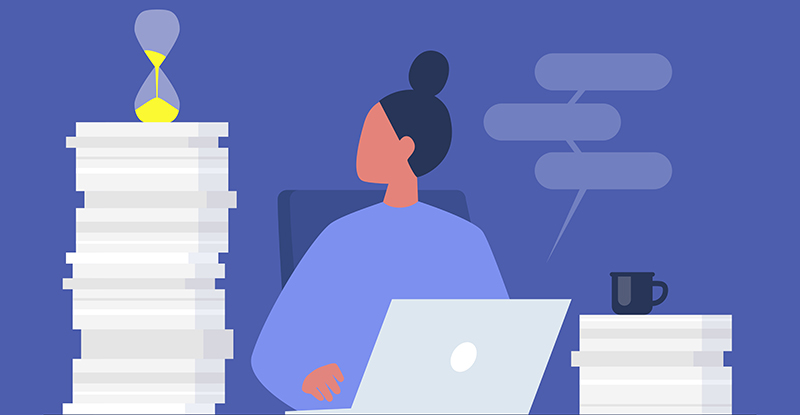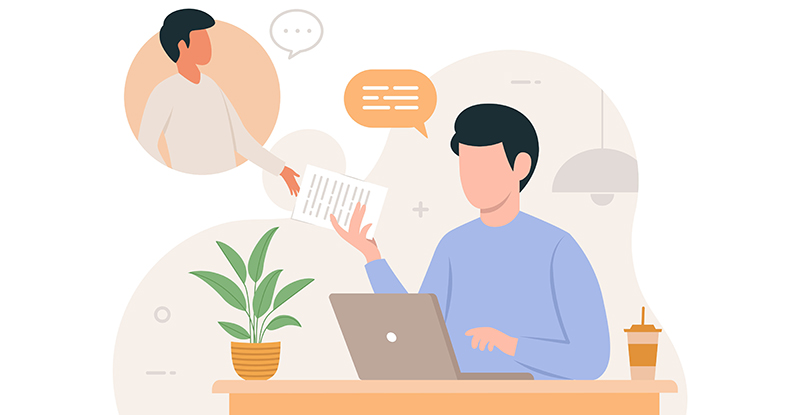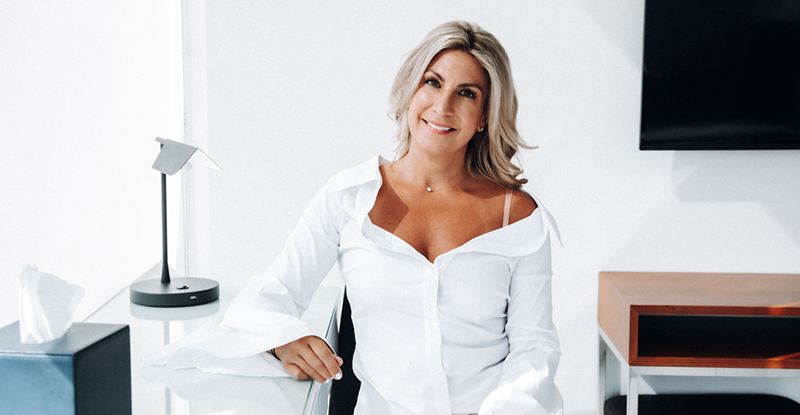
In this podcast episode, Jane Stoller, otherwise known as Organized Jane, chatted with CPABC's Vince Kanasoot, communications specialist, about how we can all get started on decluttering and setting ourselves up for success. Part of our Coffee Chats with CPABC podcast series.
“I know whenever people hear the word decluttering, everybody immediately gets anxious. And that's because we all have something that needs to be decluttered – whether it's our attic, email inbox, office, sock drawer, etc. – weighing on our minds,” says Jane Stoller, life and business organizer.
“And I want everyone to stop thinking about decluttering as something negative. Decluttering shouldn't be stressful, it should be enlightening. Think I get to declutter. I get to give this to somebody else who can use it more.”
Jane is otherwise known as Organized Jane, and she helps individuals and businesses declutter, organize processes, and reduce overwhelm both in their personal and professional lives. She recently chatted with CPABC to share some tips on how we can all get started on decluttering and setting ourselves up for success. To hear the full interview, you can listen to our podcast episode.
Below are some highlights from the conversation.
It can seem overwhelming for someone to start decluttering and getting organized. What are some first steps that you recommend?
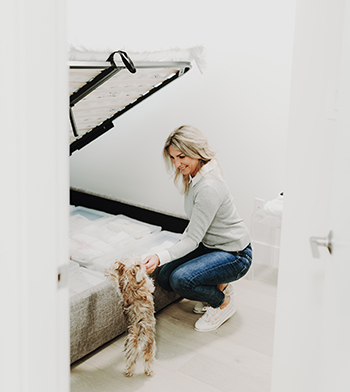 Jane: I think the first step is actually realizing you have clutter and need to change something. Tell yourself, "Okay, I'm going to make a change. I’m going to change my mindset so I can start being organized." And really, this doesn’t have to mean you have to make huge changes in your life. I equate it to going to the gym, if you wanted to start getting in shape. Put it in your schedule, and start with a few times a week. Make it become a habit and before long, you’ll see some tangible results, which will encourage you to keep going.
Jane: I think the first step is actually realizing you have clutter and need to change something. Tell yourself, "Okay, I'm going to make a change. I’m going to change my mindset so I can start being organized." And really, this doesn’t have to mean you have to make huge changes in your life. I equate it to going to the gym, if you wanted to start getting in shape. Put it in your schedule, and start with a few times a week. Make it become a habit and before long, you’ll see some tangible results, which will encourage you to keep going.
Scheduling even just 10 minutes a day in your calendar for decluttering sessions will make a big difference. If you schedule it, you are 90% more likely to actually do it. Feel free to get your co-workers or family involved too, because they might be also benefit from decluttering.
We've all seen people who have messy cars, messy desks, messy closets, messy desktop, you name it. But some of these people still get their work done on time and they seemingly look okay. But underneath what's visible, it can be a different story. What can be the negative repercussions both mentally and holistically?
Jane: One thing to understand is that everyone has their own definition of “messy”, so your definition of being “messy” can be “organized” for somebody else. So, you don’t have to be perfect to be organized, rather your level of organization needs to fit your lifestyle.
But if you find yourself overwhelmed by your clutter, that’s when it becomes a problem. If you have so much clutter that you can't find things – even though you manage to get your work done on time – it’s going to negatively affect your mental health. You’ll likely get stressed out and lose focus, and all of this can affect your relationships.
You might not notice these effects right away, but over time if you’re always looking for things, you might find yourself showing up late, losing time with your family, etc. These little things can add up, and evolve into mental health issues. It can get to a point where you need to get help from a coach or therapist. But a lot of us can make simple changes in our life to reduce our clutter and make sure we don't get to that point.
Many of us have been working from home since the start of the pandemic. And while working remotely, we realized that we actually don't need a lot of stuff. Now, we might be going back into our offices and realizing how much of a cluttered mess our workspaces are. So if you’re back at the office (or just trying to declutter your work-from-home space), assess what you need on a daily basis and remove everything else. Because unnecessary items in your workspace can cause distractions.
If you need to put a bin in your office or your closet that says donate or sell, do that because there's lots of other people who could be using something you don’t need. I challenge everybody to keep decluttering top of mind and make it a habit.
What are three productivity hacks that you recommend?
Jane: Number one is using some type of time management tool – something to help you keep track of the time you’re spending on tasks. I use a time cube, but you can use whatever you want – some people use smart home devices like Amazon Alexa or Google Home, or even simple stopwatches. Just don’t use your mobile phone, because our phones can be huge sources of distraction.
The objective is to keep you on task without getting distracted. Let’s say you want to work on going through your emails. You’ll set your time management device for 30 minutes. During these 30 minutes, you’ll only work on emails. After 30 minutes, your device will notify you and you’ll move onto the next task.
My number two hack is: Before you go to bed, write down your tasks for the next day and don’t have more than seven. This is called the Ivy League method, and it was conceived years ago by a consultant who went into the Charles Schwab steel factory and helped improve productivity.
List those up to seven tasks in order of priority, the first being the most important. You want to tackle this right away the next day and then go down the list. What you don't finish, move over to the next day.
My third productivity hack is time blocking, which means if you work on similar tasks, try blocking them together in your schedule. For example, if you create podcasts or videos, why not do six of them at once because you're already in the groove? If you're scheduling meetings with your staff, can you do them all in one or two days versus spreading them out so your focus doesn't always shift?
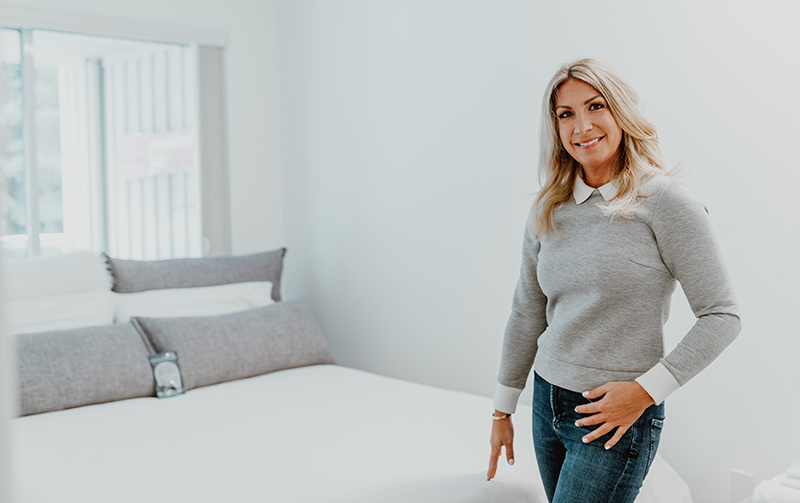
You do a lot of work with entrepreneurs and businesses, helping them organize their processes. What have you noticed to be a common productivity setback?
Jane: The biggest setback I’ve noticed is business leaders feeling overwhelmed. Part of this overwhelm is because they’re not doing the right activities or are not letting go of certain tasks they should be letting go of. It’s important to go through a task or time audit to understand where you’re spending your time. From there, you can see if there are tasks you can consider automating, outsourcing, delegating, or completely eliminating to save you time.
Another common productivity setback I’ve seen, is when business leaders don't organize their numbers properly. I'm not a numbers person and I don't love math. But I’ve learned how important it is to have your numbers organized, especially if you’re a business owner. Whether you do it yourself or hire somebody to do your bookkeeping, you need to find a way to know and understand the numbers. I’ve seen entrepreneurs who are good at so many things – for example, providing quality services or products – who are scared to organize and focus on their numbers, and this causes major setbacks.
What are some of your go-to pieces of technology, either apps or devices, that you use on a regular basis to help you stay organized?
Jane: One app I use every day is Neat, which digitizes my receipts. I just take photos of my receipts and the app uploads them. Once a week, I go in and make notes about the receipts and then send everything into my accounting software. This is a no-brainer for anyone, because it’s handy and it means you don't need to keep your physical receipts.
Another one of my go-to apps is Closet+, an inventory tracking app for closets. This is a game changer for those of us who love to shop, and find ourselves sometimes having duplicate items. When I'm shopping, I often ask myself, "Do I already have something like this?". In these situations, I refer to Closet+ and it keeps me from buying things I don’t need. Also, if I'm going to sell stuff, the pictures are already saved to Closet+. I can quickly upload them to Facebook Marketplace or whichever platform I’m selling my clothes on.
Another important go-to technology for me is file sharing. We all need to have some system in place to share documents with our teams. I think Google Drive is great for most file sharing, and I use Dropbox for photos, videos, and larger files.
For organizing photos on my mobile phone, I also use the app, Gemini Photos to stay organized. Every month I have a photo date with myself to organize my previous month’s photos. Gemini Photos goes through my phone and identifies photos that are duplicates or blurry, and asks if I want to delete them. This really helps me stay on track.
Vince Kanasoot is a communications specialist with CPABC.
